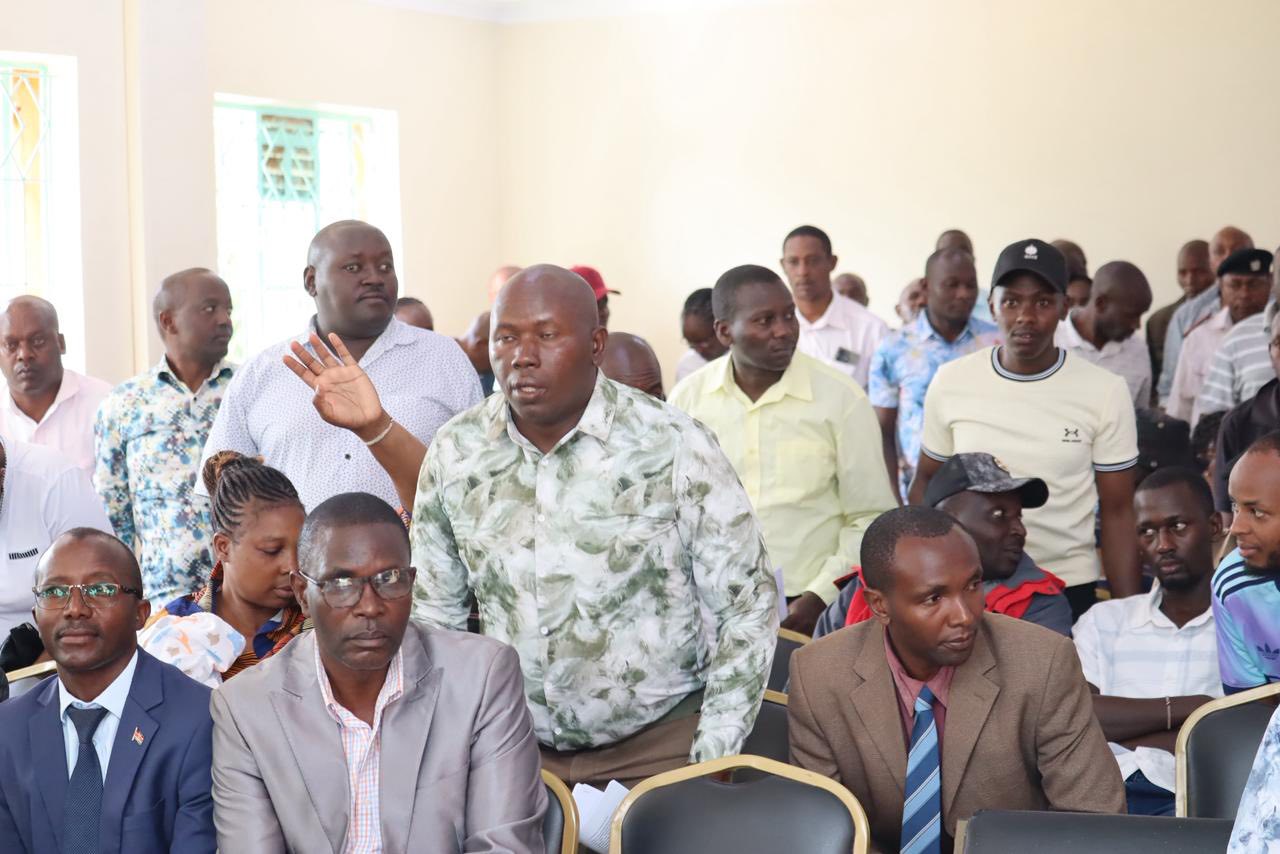Key stakeholders in the fisheries, aquaculture, and blue economy sector have dismissed the Fisheries Bill 2023 as retrogressive and ill-suited to address the needs of a fast-evolving multi-billion-shilling industry.
Aquaculture investors led by the Lake Victoria Aquaculture Association (LVA) Pete Ondeng called for the bill’s immediate withdrawal, terming it a copy-and-paste of the Fisheries Management and Development Act, 2016.LVA Board Secretary
In his submissions to the committee during a public participation meeting in Kisumu,Ondeng said the draft law ignores key developments in the sector over the past seven years and risks stifling the growth of aquaculture, widely seen as the future of fish production in Kenya.
“This bill is simply a replication of the 2016 Act. So much has evolved in this sector from technology to global best practices yet none of that is captured here. It does not give proper recognition to aquaculture, which is where the biggest opportunities lie,” Ondeng said
He questioned why Parliament was pushing the draft in its current form instead of allowing the Ministry of Mining, Blue Economy and Maritime Affairs, which holds the constitutional mandate to develop policy and guide legislation for the sector to spearhead the process.
ALSO READ:
Banks set for new risk-based pricing model as clients with poor credit history to pay more for loans
“It is like Parliament drafting a bill on health without the involvement of the Ministry of Health. The ministry should be the driver of this process, not Parliament. For them to stand on the sidelines while Parliament pushes the agenda raises serious concerns,” he told the committee.
Ondeng added that lumping aquaculture into a general fisheries bill without a development-oriented framework undermines its commercial potential.
“Aquaculture is commercial fish farming. Many countries have enacted stand-alone aquaculture development laws. Here, it is treated as an afterthought, with the focus being on regulating fishing gear and the environment without addressing how to unlock aquaculture’s growth. That is lip service,” he said.
He urged lawmakers during a public participation forum convened by the National Assembly Departmental Committee on Blue Economy in Kisumu to withdraw the bill and initiate a transparent, inclusive process involving the ministry and all stakeholders to craft a forward-looking framework.
“Our plea is not for amendments. This bill needs to be withdrawn. Let’s go back to the table, do it right, and come up with legislation that recognises the evolution of this sector and positions Kenya to compete globally in aquaculture and the blue economy,” Ondeng said.
Kakamega County Director of Fisheries, Jonathan Masaba, echoed the concerns, noting that the bill fails to adequately capture aquaculture, which has recorded tremendous growth in recent years. He added that the public participation forums have largely focused on lake and river counties, sidelining inland counties like Kakamega that are key players in on-farm fish production.
ALSO READ:
State to roll out e-voucher system for livestock vaccination to curb diseases
Masaba proposed the creation of stand-alone laws for aquaculture, on-farm fish production, and inland water bodies such as rivers and dams to boost fish production nationally.
Representatives of Beach Management Units (BMUs) on Lake Victoria also pushed for their inclusion in the bill, citing their critical role in conservation and regulation.
“This bill must provide for stipends for BMU chairs and leaders because they play a critical role in enforcing fisheries regulations and government directives in the sector,” said Victor Okul, a BMU member from Ogal Beach.
National Assembly Departmental Committee on Blue Economy, Water and Irrigation Vice Chairperson, Marwa Kitayama, assured stakeholders that their recommendations will be considered.
Kitayama, who is also the Kuria East MP, said the committee will hold additional forums in Siaya, Migori, Homa Bay, Naivasha, and the coastal region before compiling stakeholder views into the final draft.
“Fish stocks in Lake Victoria have dropped due to illegal fishing practices and the use of wrong gear. This is a big threat to food security, and that is one of the issues this bill seeks to address,” he said.
Kenya consumes an estimated 600,000 metric tonnes of fish annually but produces less than half of that, relying on imports—mainly from China—to bridge the gap. With natural fish stocks in Lake Victoria dwindling due to overfishing and pollution, aquaculture remains central to Kenya’s food security and blue economy agenda.
By Fredrick Odiero
Get more stories from our website: Sacco Review.
For comments and clarifications, write to: Saccoreview@
Kindly follow us via our social media pages on Facebook: Sacco Review Newspaper for timely updates
Stay ahead of the pack! Grab the latest Sacco Review newspaper!



